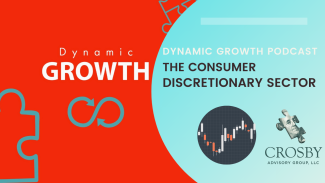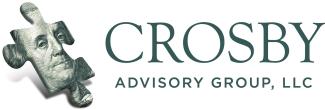
The Consumer Discretionary Sector
The Consumer Discretionary Sector
How can a sector filled with “non-essential” goods not be a fun topic to dive into? Luxuries we don’t need – yes, please! Let’s take a look at the sector made up of companies opposite from our earlier podcast on consumer staples – the consumer discretionary sector.
What’s included
Prior to COVID, I never would have thought about something I was buying as non-essential or essential. Amazon, automakers, auto parts, restaurants, travel – all the fun stuff – make up this sector. Much like communication (hint: Meta Platforms & Alphabet), consumer discretionary has two companies that makeup roughly 40% of the sector - those being Amazon (23%) and Tesla (17%).
Consumer behavior
A robust economy, low-interest rates, rising wages – all signs that point to this sector performing well. Some (Nate & Derek) may speculate that a high inflationary environment also sparks sector performance. Why? In theory, a dollar today is worth less in six months, so why not spend it now? In a low inflationary time, consumers may be more likely to save.
University of Michigan consumer sentiment index, we see some sharp declines - including:
- A 10-year low for consumer confidence
- Personal spending is at a 12-month low
- Personal savings have increased in the last 3 months
So, what does that mean? If you’re a glass half full kind of investor then strike while the iron is hot! On the other hand, it’s not exactly a rosy time for the consumer in terms of spending.
The numbers
SPDR XLY makes up 12% of the S&P 500 with a .87 market correlation. This sector has been great to own since 2000 (beating the S&P 500), since 2008 it has never been the worst or 2nd worst performing, and is still today the 2nd best performing sector behind the technology.
Did someone say branding?
If you’re following along with our podcasts and newsletters, you know that we did a bonus episode on branding last week. This week, financial and marketing podcasts collide! Think about the branding for our watch list of companies - Nike, Starbucks, Home Depot, Lowes, Amazon, McDonald's, Booking Holdings, Target, TJX Companies - it's a marketer's dream! These companies have loyal followers, large communities, and fans all over the globe. They are fast-growing, sought-after brands that spend their ginormous marketing budgets convincing their target audiences why they can't (or shouldn't want to!) live without their products.
What does this mean for Crosby Advisory?
Buying the sector gives you exposure to both high- and low-priced stocks – including companies that will help ride the waves of unforeseen things like COVID. We’ve not included this sector in our tilt (because it’s historically pretty high – reminder: tilt = adding a small concentration to the portfolio in an investment or sector that appears to have a growth advantage going forward) and we don’t intend to add it for 2022. Our tactical model, however, will continue to give our clients exposure to the larger companies in this sector.
Remember: there are times that no matter what you buy you win. On the other hand, when the market corrects it happens very fast! To avoid chasing a return, the best thing to do is own various types of investments. You seriously thought we’d go a whole blog without saying it? Diversification is the strategy this year and there’s room for our favorite non-essentials on the list!
Please note: This content is not a direct recommendation for investment. Investing involves risk including the potential loss of principal. Not all investments are suitable for all people. Crosby Advisory Group, LLC is a registered investment advisor in Ohio, Florida, and Texas.

